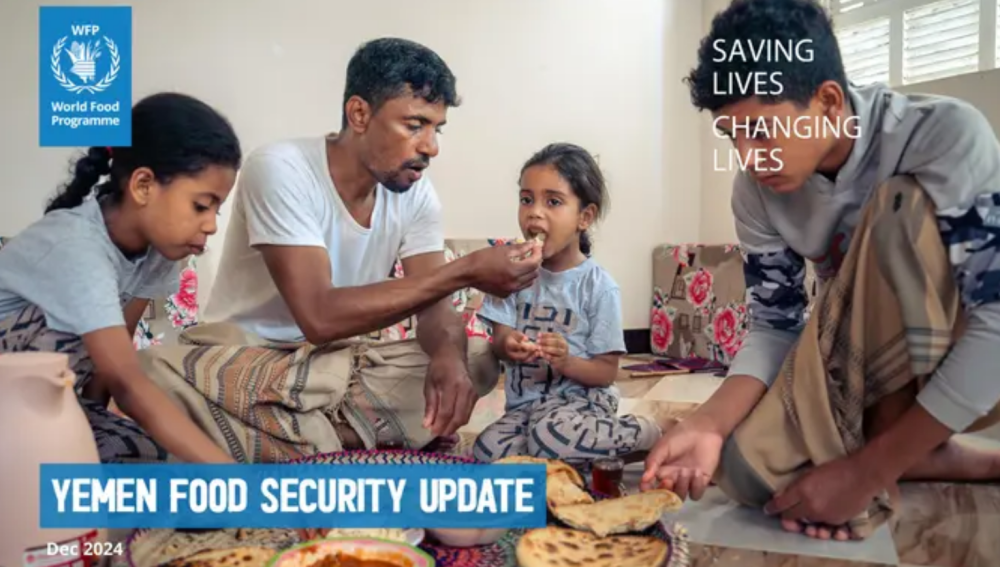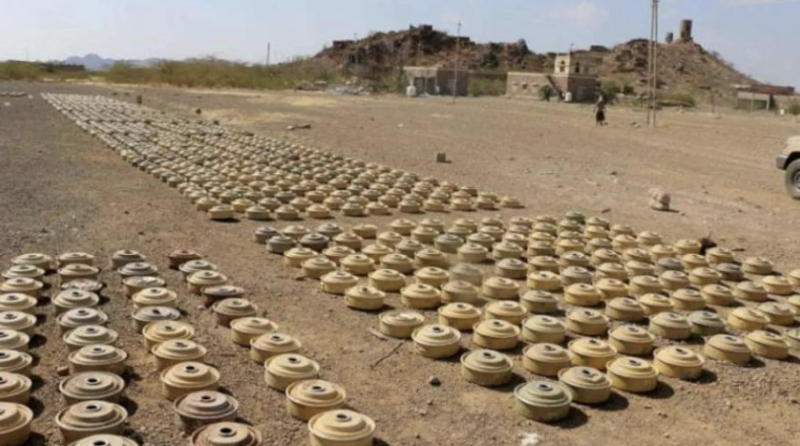WFP Yemen Food Security Update, December 2024


During November 2024, Yemen's food security situation remained critically alarming.
Nationwide, approximately 61 percent of surveyed households struggled to access sufficient food, representing a slight one percent month-on-month decrease but still a significant 31 percent increase compared to November 2023.
Economic challenges, funding shortfalls, and the suspension of food assistance across most districts in SBA areas, compounded by limited income-generating activities, were identified as the key drivers.
The prevalence of inadequate food consumption reached 64 percent of households in IRG-controlled areas and 59 percent in SBA areas.
Every governorate in Yemen exceeded the "very high" threshold of 20 percent for poor food consumption, except Sana’a City and Al Mahwit. A seven percent improvement in inadequate food consumption was observed in SBA areas compared to August 2024, potentially attributed to the resumption of food distributions.
Economic conditions worsened in IRG areas, where the Yemeni Riyal depreciated 26 percent year-on-year and lost 72 percent of its value against the US dollar over five years. This depreciation contributed to record-high prices and the escalating cost of the minimum food basket (MFB) throughout 2024.
Fuel imports declined marginally by three percent during January-November 2024 compared to the same period in 2023, while food imports rose by 14 percent year-on-year. Globally, the FAO Food Price Index indicated a six percent increase over the past year, marking the highest levels since April 2023.
In response to funding constraints, WFP reduced food assistance targets in IRG areas from 3.6 million to 2.8 million beneficiaries during the fourth food assistance cycle of 2024.
In SBA areas, the first cycle of WFP’s new Targeted Emergency Food Assistance (TEFA) programme commenced in early November and concluded by the month’s end. Post-distribution monitoring revealed improvement in food consumption levels, with the proportion of beneficiary households experiencing poor food consumption declining from 52 percent in August to 37 percent in November.
This trend mirrors improvements observed after the RER assistance in September 2024 and aligns with levels recorded in November 2023 before the assistance pause.

Aden — Security sources have revealed that dozens of irregular African migrants landed on the shores of Shabwa governorate in southeastern Ye…

Washington – Yemen has been ranked among the world’s top 20 countries experiencing the highest levels of political and deadly violence…

Aden – The operations room of the Saudi-funded Masam demining project announced that its field teams have successfully removed 2,656 landmine…